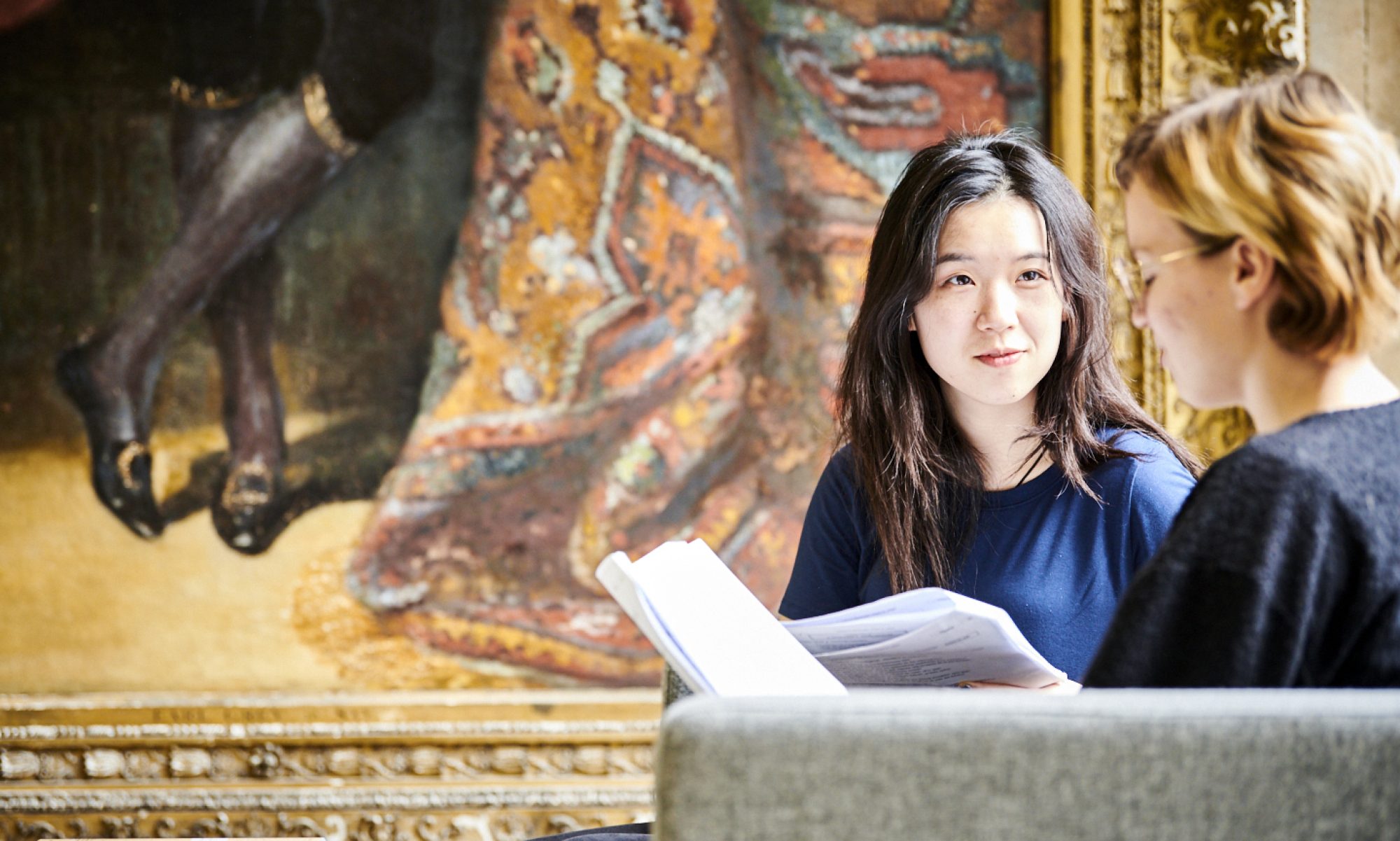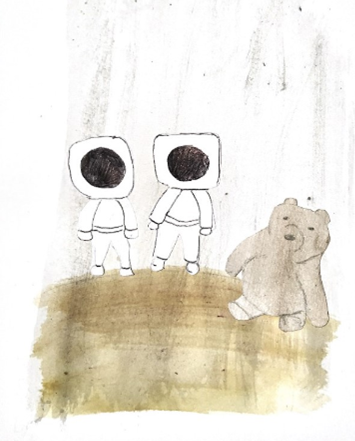In Newcastle University School of English Literature, Language & Linguistics there are lots of opportunities to get creative with your assessments – from podcasts to film, digital exhibitions to posters, you will have lots of scope to learn new skills and get creative.
One of our first year modules SEL1008: The Nature of Language asks students to submit “anything but an essay” to demonstrate the Linguistics work they’ve been learning in the first semester. This is a really exciting project that allows students to get creative.
Here are some examples of work students submitted in 2020.
Caitlin Knaggs produced an illustrated children’s story on bilingual language acquisition.
Christian Sharrier recorded a video about Multicultural English.
Another student, Cerys Bodey, decided to write a poem series of “grandmotherese” based on a 2010 investigation by Shute & Whedall that looks at how grandmothers speak to their grandchildren. Here’s an excerpt from the poem:
It is understood that adult to child speech varies,
So this research is about acoustic enquiries.
Through high pitch and increased variability,
This ‘motherese’ speech is quite a facility.
While research suggests mothers increase their pitch,
Fathers are not quite as bewitched.
However, these results lack individual variation,
Not even to mention cross cultural fluctuation.
A study of sixteen parents, method same to this,
Indicates alternative ways to change in pitch.
Moreover, child rearing patterns change with time,
So surely ‘motherese’ speech will follow this rhyme.
Linguistics student Hannah Harvey wrote a children’s story about syllable discrimination in early literacy. The story follows a Portuguese princess who is struggling to learn words and syllables.
Another Linguistics & Japanese student created an interview about perceptions of regional accents – and transcribed it into the International Phonetic Alphabet, excerpt below:
A: would be (1) by saying the place (.) or the place of origin of the speaker(.) will have a noticeable or considerable difference on their respective (.) speech (.) production patterns (2) so their accentsor dialects(.) for example//1
P: //ah right so (.) yknow if theyre from Liverpool maybe theyd have some sort of different way of speaking or (.) acting (.) maybe=
A: =yeah sort of exactly yeah (.) so we also initially wanted to provide some basic information on (.) of a listeners perceptions of speech by:::: looking at their perceptual (.) space
P: their::::=
A: =haha yes it sounds fancy doesn’t it (1) no[breathes]its just how one would distinguish a speakers language patterns
We hope you’ve enjoyed this insight into the exciting work our students have been creating this year.
If you have any questions about Newcastle University School of English Literature, Language & Linguistics with email english@ncl.ac.uk.


